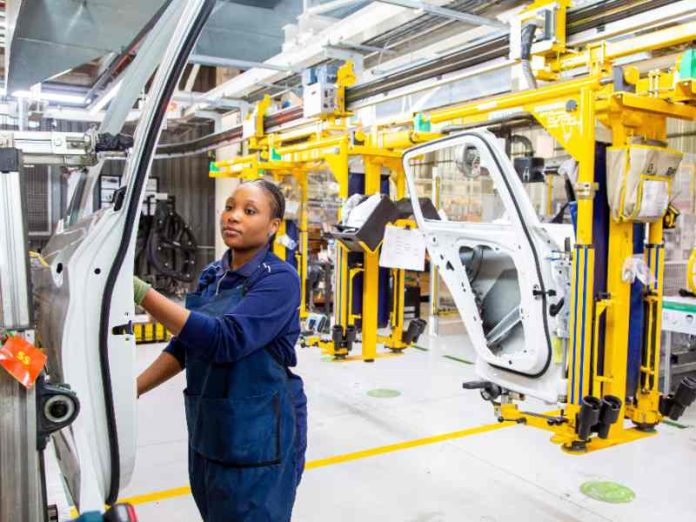Africa’s industrial future is at a turning point, with rapid economic growth, increased foreign investment, and a push for self-sufficient manufacturing. Across the continent, leaders are prioritizing industrialization as a key driver of economic transformation, aiming to turn Africa into a global manufacturing powerhouse.
But change is happening. Across Africa, governments and businesses are working to expand manufacturing capacity, reduce dependency on imports, and add value to local resources.
The Importance of Manufacturing
Manufacturing is the foundation of strong economies. Countries that develop manufacturing industries:
- Create jobs
- Build industrial expertise
- Retain wealth within their borders
For too long, Africa has been an exporter of raw materials rather than finished products. Resources like oil, minerals, and agricultural goods are shipped abroad, processed elsewhere, and sold back at a premium. This has prevented economic independence, but efforts to change this model are gaining momentum. World Bank report
The Challenges of Industrialization
Despite the opportunities, industrialization in Africa is challenging. Several barriers must be overcome:
1. Energy Shortages
Factories require reliable electricity, but power shortages increase production costs and make large-scale manufacturing difficult. Many businesses rely on diesel generators, which further drive up expenses.
2. Poor Transportation Infrastructure
Efficient transportation networks are essential for moving raw materials and finished goods. However:
- Poor road conditions slow down supply chains.
- Outdated rail networks make bulk transportation costly.
- Congested ports delay shipments, increasing logistics costs.
Without efficient supply chains, manufacturers struggle to compete with foreign imports.
3. Lack of Specialized Labor
Modern manufacturing requires a skilled workforce trained in technical education and vocational training. However, many African countries lack advanced training programs, limiting the availability of qualified workers.
Infrastructure and Trade: The Keys to Industrial Growth
Modern railways, highways, and ports are vital for Africa’s industrial future. Better infrastructure reduces costs, improves efficiency, and makes trade more competitive.
For example:
- Kenya’s Standard Gauge Railway has dramatically cut transit times, helping businesses export goods faster.
- Upgraded ports in Ghana and Tanzania are improving trade efficiency.
- Cross-border highways in West Africa are strengthening regional supply chains.
The African Continental Free Trade Area (AfCFTA) is expected to accelerate this shift by opening borders and encouraging trade between African nations. With 1.4 billion people and a combined GDP of $3.4 trillion, Africa has the potential to create a massive internal market for its own manufactured goods.
The Role of Special Economic Zones (SEZs) and Technology
Many African governments are creating Special Economic Zones (SEZs) to attract manufacturers. These zones offer:
- Tax incentives
- Reliable energy and infrastructure
- Simplified business regulations
Technology is also transforming manufacturing in Africa. Automation, AI, and digital tools are improving efficiency, allowing factories to scale production while reducing costs.
A New Generation of African Manufacturers
Across the continent, local industries are emerging, led by visionary entrepreneurs who see a future where Africa builds, produces, and exports its own goods.
For example:
- Automobile plants in Nigeria are assembling vehicles for the regional market.
- Textile factories in Ethiopia are reducing Africa’s reliance on imported clothing.
- Food processing plants in Ghana are transforming local agricultural products into export-ready goods.
These businesses aren’t just creating products—they are laying the foundation for Africa’s economic independence.
The Road Ahead: Will Africa Become a Global Manufacturing Hub?
Manufacturing in Africa is growing, but challenges remain. Industrialization requires:
- Coordinated policies
- Long-term investment
- Commitment from both governments and the private sector
The transition from a raw materials exporter to a global manufacturing hub won’t happen overnight. However, with the right infrastructure, energy solutions, and workforce development, Africa has the potential to build a strong, self-sufficient industrial base.
As Africa continues its industrialization push, the future of its economy hinges on a strong manufacturing sector, trade agreements, and technological advancements. Africa’s industrial future will be defined by how well these factors align.
What’s Next?
Will Africa continue to rely on foreign-made goods, or will it rise as a manufacturing leader? The decisions made today will determine the continent’s economic future for generations to come.
📌 Related: How Africa’s Digital Revolution is Transforming the Economy
📌 Related: The Future of Education in Africa
